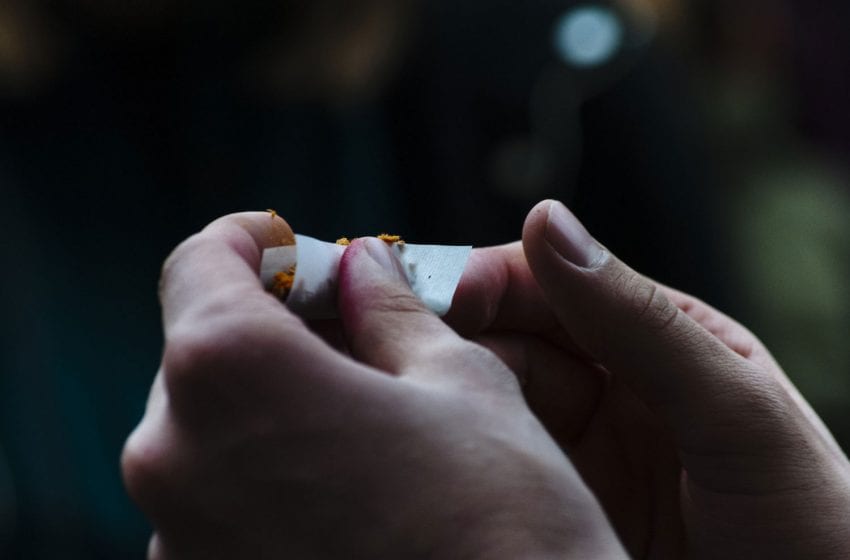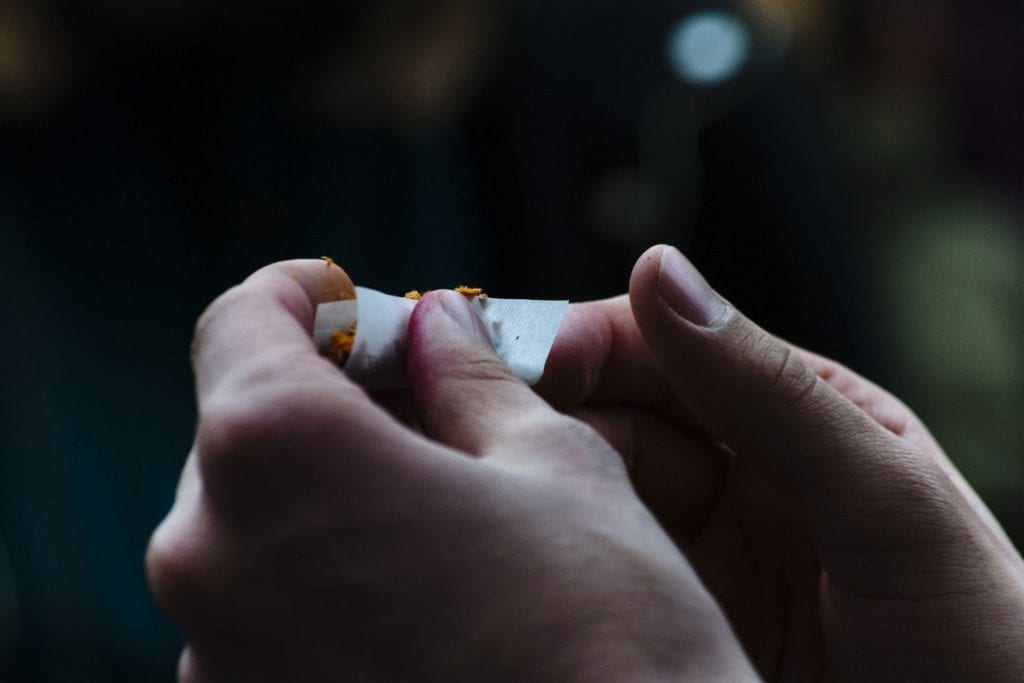Struggling to contain a crisis that it ignored for a month, the U.K. government raises the tax on roll-your-own cigarettes.
By George Gay
In its March budget, and in the midst of the coronavirus crisis, the U.K. government increased the duty on roll-your-own (RYO) tobacco by inflation plus 6 percent. I am told that anti-smoker campaigners had been calling for an increase of inflation plus 15 percent.
I find it difficult to understand how the government and campaigners can act in such an unfair, discriminatory and callous way, especially at this time. Smokers are largely made up of the financially less wellvoff, and many RYO consumers are smokers who cannot afford cigarettes. At the same time, a lot of RYO smokers are elderly, perhaps lonely. Are they to be allowed no solace as they are forced by government diktat into isolation because of the threat that they may contract Covid-19? Having been told for most of their lives—wrongly as it turns out—that smoking will kill them, are they in fact to be killed by a type of virus nobody bothered to warn them about—and without the comfort of a final rollie? Is it not possible for those with power and influence to forget their alcohol (no duty increase, of course), cocaine (illegal, so ditto) and other apparently more acceptable habits for a while and imagine themselves in the shoes of the less well off?
The U.K. government proved to be woefully unprepared to protect its people from the perfectly predictable arrival of a deadly coronavirus that those people, individually, have almost no protection against. But it stands ready to fight any 70-plus-year-old who chooses to indulge in the legal habit of smoking an RYO cigarette.
In one of his statements, the U.K.’s prime minister, Boris Johnson, widely viewed as a libertarian, suggested that one of the reasons why the government was taking a “gently, gently” approach to curbing people’s ability to fraternize during the coronavirus crisis was that the U.K. was a bastion of liberty. Given that smoking tobacco, a legal product, is banned from public places in the U.K., the argument seemed to be that people should, in the name of liberty, be allowed to gather together to spread the deadly virus, which kills within weeks, whereas smokers should not be allowed to gather together because of the miniscule threat that secondhand smoke will kill a bystander within 40 years or so. Of course, as the “science changed,” (you couldn’t make this up) he was soon in full retreat from his defense of liberty and moving to his more usual stance of taking liberties.
The argument seemed to be that people should, in the name of liberty, be allowed to gather together to spread the deadly virus, which kills within weeks, whereas smokers should not be allowed to gather together because of the miniscule threat that secondhand smoke will kill a bystander within 40 years or so.
But one can expect no more. The government, run apparently by a bunch of self-styled weirdos and misfits and bent on undervaluing the country’s experienced, serious-minded and formerly internationally respected civil servants, found itself way out of its depth as it reaped the whirlwind of 10 years of austerity and the onward march of Covid-19 through a nation it had torn apart over Brexit. Covid-19, marching in lockstep with an economic meltdown and a financial panic, emerged on the back of the free market and proved unmoved by the prime minister’s only weapons: bluster and a pantomime-like imitation of Winston Churchill that surely would not earn him an Equity card.
The government couldn’t and, as I write, still cannot provide an efficient or anything like adequate testing regime for the virus. Indeed, a new cabinet, seemingly made up mainly of poodles and patsies who a few months earlier had bleated for the cameras how the government was going to build 40 new hospitals, couldn’t, even by the end of March, provide face masks for all frontline medical staff.
And this, of course, was the reason for the huge increase in RYO tax. It wasn’t about forcing RYO smokers to quit their habit (they are addicted, after all). It was about the government casting about among the financially poor to find the funds necessary to face up to the crisis that it appeared to have largely ignored for a month.
The government’s duty increases on tobacco products will, of course, have greatly pleased the World Health Organization (WHO), which advocates taxing poor smokers heavily (for their own good, of course), but the government’s response to the coronavirus outbreak went down less well with the WHO, which at times seemed nonplussed by the government’s approach, or lack of it. Still, what can the WHO expect? The U.K. is a fully paid-up member of the WHO’s Framework Convention on Tobacco Control, but there is, of course, no Framework Convention on Coronavirus Prevention and Control.
Prevention. Now there’s a thing. What are the chances that, with the world’s health defenses not reserved for tobacco all pointing at Covid-19, anyone is watching our backs for the arrival of the next deadly coronavirus? Not great, I would suggest. And it will arrive as sure as night follows day unless things change and prevention is pushed to the fore. We know what some of the main risk factors in respect of such viruses are, so even if we cannot prevent their outbreak, we can greatly reduce their likelihood. But we won’t; the free market, marching in lockstep with inept leaders around the world, will see to that.













